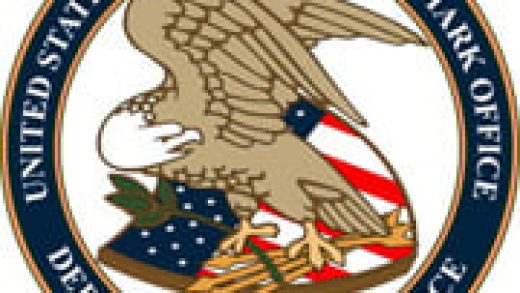TikTok users might begin noticing more direct mental health awareness outreach in their feeds, as the platform launches a new fund for mental health organizations in honor of May’s Mental Health Awareness Month.
The Mental Health Media Education Fund will provide $2 million in app advertising credits to seven mental health organizations posting and advertising resources on the app, in a bid to support the mental well-being of its users — and make it easier for nonprofits to reach their communities on TikTok.
Libraries take to TikTok to build community and new cultural relevance
The organizations collaborating with the platform include:
-
The National Alliance for Eating Disorders (@alliancefored), a nonprofit providing education, referrals, and support to people living with eating disorders through its free help line and referral app. The organization also offers direct training and services, including national support groups.
-
American Foundation for Suicide Prevention (@afspnational), a national volunteer health organization working to “save lives and bring hope to those affected by suicide and loss.”
-
Crisis Text Line (@crisistextline), a free, 24/7 mental health support line.
-
The Made of Millions Foundation (@madeofmillions), a global advocacy nonprofit working to end public mental health stigma through art, media, and digital technology.
-
National Alliance on Mental Illness (@nami), a grassroots-built national alliance of more than 600 affiliated organizations and 49 state organizations working to provide mental health support and education.
-
National Eating Disorders Association (@neda), a nonprofit providing resources to individuals and families affected by eating disorders, including screenings, support groups, research studies, and a free help line.
-
Peer Health Exchange (@peerhealthexchange), a youth-oriented health organization that fosters community building through direct engagement in high schools and its own app, selfsea.
“NEDA and TikTok are committed to working together to continue to raise awareness and provide resources for individuals and families,” wrote Sarah Chase, vice president of communication for the National Eating Disorders Association (NEDA) in the fund’s announcement. “Eating disorders can be isolating and stigmatizing for many people and TikTok is a globally accessible platform, which makes it an important place for raising awareness and understanding of eating disorders from a variety of perspectives.”
TikTok took a similar route to address public health in 2020, donating $100 million of ad credits to small and mid-size businesses during the COVID-19 pandemic, and another $25 million to nongovernmental organizations providing health education. Other social platforms have used this kind of advertising perk to support monthly cause-focused programming, as well. In 2021, Pinterest announced it was donating ad credits to the National Eating Disorders Association in honor of National Eating Disorder Awareness Week. It did the same for the nonprofit mental health advocacy #HalfTheStory campaign during Mental Health Awareness Month in 2021.
To expand on the Mental Health Media Education Fund advertising efforts, TikTok says it will provide training sessions for organizations supported through the fund to help them better utilize and expand their reach on the app.
And for all users, the platform announced a new #MentalHealthAwareness hub available on the #MentalHealthAwareness hashtag page. The hub features relevant educational videos, organization shoutouts, and mental health and wellness creator highlights, and will continue to be updated throughout May.
As part of that app-wide education effort, TikTok also released its #MentalHealthAwareness Creator Spotlight, which features 10 creators who are fighting to end mental health stigma, sharing educational content about mental health and other related subjects, and connecting with the larger TikTok community to “foster open, honest, and authentic conversations.” The spotlight includes:
-
Certified meditation teacher, mindfulness coach, and musician Joel Cross (@asoulcalledjoel)
-
Psychotherapist, actor, comedian, and writer Dr. Kojo Sarfo (@dr.kojosarfo)
-
Registered dietitian, certified eating disorder dietitian, and board-certified sports nutrition specialist Elaina Efird (@elainaefird)
-
Writer and comedian Elyse Myers (@elysemyers)
-
Medical student Joel Bervell (@joelbervell)
-
Licensed therapist and private practice owner Lindsay Fleming (@lindsay.fleminglpc)
-
Registered dietitian Kylie Sakaida (@nutritionbykylie)
-
Board-certified psychiatrist Dr. Sasha Hamdani (@thepsychdoctormd)
-
Counselor Jeff Guenther (@therapyjeff)
-
Mental health advocate and podcast host Victoria Garrick Browne (@victoriabrowne)
“Through continued collaboration with mental health organizations, content creators, and our TikTok community, we continue to raise awareness and foster a space where everyone can feel heard and supported — during #MentalHealthAwareness Month and beyond,” TikTok wrote in its announcement. “We believe that everyone deserves access to resources and support for their mental well-being, and we are dedicated to continuously learning, evolving, and making a difference.”
If you’re feeling suicidal or experiencing a mental health crisis, please talk to somebody. You can reach the 988 Suicide and Crisis Lifeline at 988; the Trans Lifeline at 877-565-8860; or the Trevor Project at 866-488-7386. Text “START” to Crisis Text Line at 741-741. Contact the NAMI HelpLine at 1-800-950-NAMI, Monday through Friday from 10:00 a.m. – 10:00 p.m. ET, or email [email protected]. If you don’t like the phone, consider using the 988 Suicide and Crisis Lifeline Chat at crisischat.org. Here is a list of international resources.
If you feel like you’d like to talk to someone about your eating behavior, call the National Eating Disorder Association’s helpline at 800-931-2237. You can also text “NEDA” to 741-741 to be connected with a trained volunteer at the Crisis Text Line or visit the nonprofit’s website for more information.
Source : TikTok promotes mental health outreach with $2 million advertising fund











